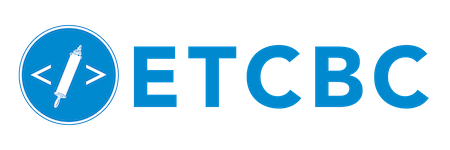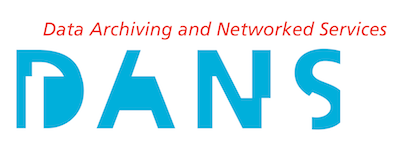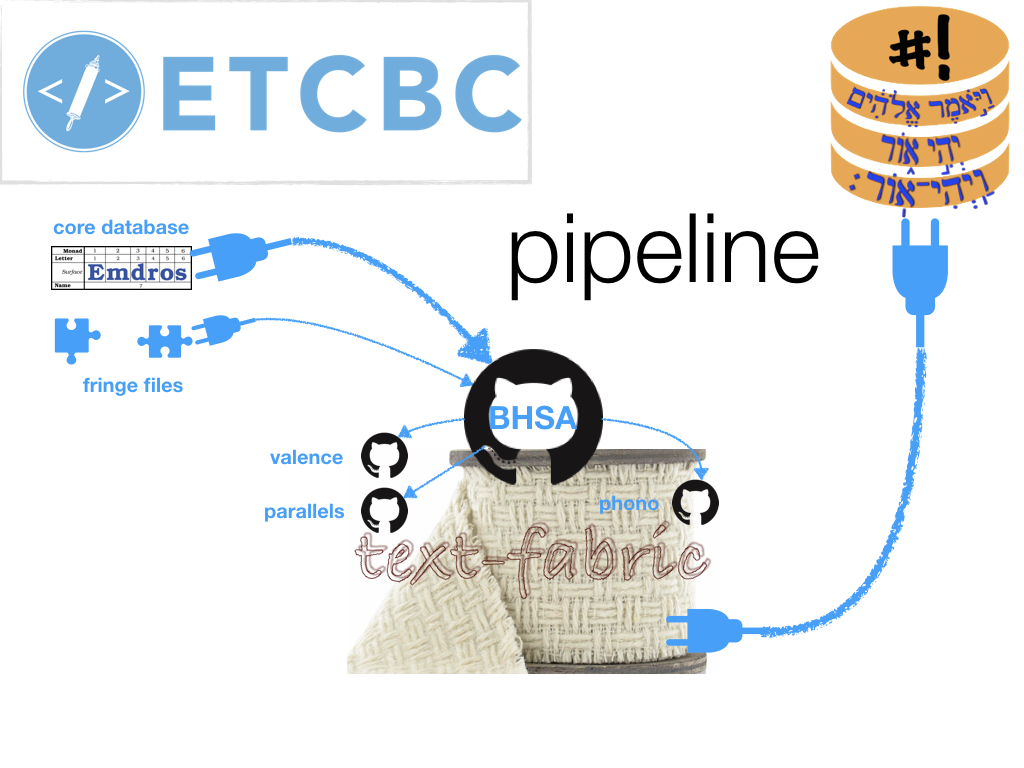- bhsa Core data and feature documentation
- phono Phonological representation of Hebrew words
- parallels Links between similar verses
- valence Verbal valence for all occurrences of some verbs
- trees Tree structures for all sentences
- bridging Open Scriptures morphology ported to the BHSA
- pipeline Generate the BHSA and SHEBANQ from internal ETCBC data files
- shebanq Engine of the shebanq website
- dss Dead Sea Scrolls
- extrabiblical Extra-biblical writings from ETCBC-encoded texts
- peshitta Syriac translation of the Hebrew Bible
- syrnt Syriac translation of the New Testament
This is the connection between the Amsterdam Hebrew data of the ETCBC and the website SHEBANQ of DANS.
This pipeline delivers, among other good things, a file shebanq_etcbc2021.mql.bz2
which contains all ETCBC data and research additions to it.
The form is MQL, compressed, and the size is less than 30 MB.
Where ever you have Emdros installed,
you can query this data.
This repo contains a pipeline in software by which the ETCBC can update its public data sources. The pipeline has two main pipes:
Between the two pipes there is a set of open GitHub repositories that contain the data in a compact, text-based format, text-fabric, which is uniquely suited to frictionless data processing.
The public data of the ETCBC is live data, in the sense that it is actively developed at the ETCBC. Mistakes are corrected, new insights are carried through, and the fruits of research are added as enrichments. This leads to new versions of the data, once in every few years. Whenever a new version has to be produced, this pipeline manages all the details, and helps to prevent omissions.
Between versions, many things can happen to the contents and organization of the data features. This pipeline is a useful tool to deal with those challenges.
The pipeline produces versions of the whole spectrum of interconnected ETCBC data.
These versions (2017, 2021, ...), once published, will not change anymore
in essential ways.
It might be the case that certain aspects of the feature organization will be changed,
but these changes do not reflect data updates by the ETCBC.
Think of conversion errors by an earlier run of the pipeline.
Sometimes we add data redundantly in order to make certain queries easier.
With useful feedback of Cody Kingham and Christiaan Erwich.
The ETCBC dumps the data files of a new data version
in the BHSA repo,
in the subfolder source/version.
The data consists of:
- a big MQL dump with most of the features,
- several related data files in other formats, containing
- the lexicon,
- ketiv-qere data and
- paragraph numbers.
From there this pipeline takes over. The BHSA repo contains the notebooks to convert this all to a text-fabric data set, called core.
But this is not all.
The ETCBC maintains additional GitHub repositories.
- valence (verbal valence),
- parallels (parallel passages),
- phono (phonological transcription).
- trees (tree structures).
- bridging (Open Scriptures morphology). These repos contain methods to produce new data from core data (and third party data) and to deliver that as new text-fabric data modules.
When the pipeline runs, it finds those methods and executes them.
This part of the pipeline:
- aggregates all text-fabric data (core plus modules) to one big MQL file,
- compiles all the text-fabric data into website friendly MYSQL databases,
- compiles annotation sets from the relevant text-fabric data modules,
such as
parallelsandvalence.
All repos involved should commit and push to GitHub,
in order for the outside world to see the changes.
For each repo (currently: bhsa, phono, parallels, valence, trees, bridging)
cd ~/GitHub/etcbc/repo
git add --all .
git commit "pipeline has run"
git push origin masterCaveat
It is wise to perform a git pull origin master after the commit,
in case other users have committed changes to GitHub.
The following steps should be done at the production server:
- the aggregated MQL is imported into a live Emdros database, the database against which the SHEBANQ queries are executed;
- the MYSQL databases are imported into the live MYSQL database system, which powers the display of SHEBANQ text and data views;
- the generated annotation sets are imported in the notes database (also a MYSQL database), from where SHEBANQ fetches all manual annotations for display next to the text in notes view. Existing incarnations of these note sets should be deleted first.
The pipeline is coded as a Jupyter notebook, but it can also be run as a script, by converting it first to plain Python.
The individual repositories also code their data processing in Jupyter notebooks. When the pipeline runs, it find these notebooks, converts them, and runs them in a special mode.
The benefit of this approach is, that the data processing per repo can be developed interactively in a notebook, without any pipeline concern.
Later, the bits that are needed for the pipeline, can be brought under the scope of the special mode.
If the pipeline runs these notebooks, and they produce errors, you can go to the faulty notebook, run it interactively, diagnose the misbehaviour and fix it.
Here is how the pipeline runs a notebook
- convert the notebook to python with nbconvert;
- read the script as file and execute it as a python string, through the built-in exec() function;
- supply arguments to the script by injecting them directly into locals().
We adopt the convention that the pipeline passes a boolean parameter SCRIPT with
value True to each notebook that it runs in this way.
Every notebook in the pipeline has to check (first thing)
whether the variable SCRIPT is among the locals().
If not, the script knows that a user in interacting with it. In that case, it is handy to set the remaining parameters that are relevant to the pipeline to the values that you want for your interactive sessions, e.g.
if 'SCRIPT' not in locals():
SCRIPT = False
FORCE = True
CORE_NAME = 'bhsa'
VERSION = 'c'
CORE_MODULE ='core' These settings will not be seen by the pipeline!
When run by the pipeline, 'SCRIPT' in locals() is true,
and the variable assignments in this cell do not take place.
Instead, the pipeline injects particular values for these variables.
Effectively, the notebook has turned into a generic function, to which you can pass parameters.
So the pipeline can run a notebook several times in a row for different versions, without the need to change the notebook in any way.
When you compute interactively with the notebook, you may want to do things that are not relevant to the pipeline.
That is easy. Just put your things under:
if not SCRIPT:
# my things ...or even better, define the function
def stop(good=False):
if SCRIPT: sys.exit(0 if good else 1)
and take care that in script mode this function is called at the end of the operations relevant for the pipeline:
success = lastOperation(data)
stop(good=succes)Whatever you do in cells after this statement, it will not be reached by the pipeline.
Caveat
In interactive mode, after running the cell with if 'SCRIPT' not in locals(),
we will have SCRIPT == False.
That means, from then on the variable SCRIPT exists and 'SCRIPT' in locals() is true.
So, if you, in your interactive session, want to change from VERSION = 'c' to
VERSION = '2017',
you'll discover that this statement is not executed.
The best way to overcome this is to restart the kernel of the notebook.
If you do not want to loose your variables, just say
if not SCRIPT: VERSION = '2017'so that the pipeline operations do not get overridden by your specific choice.



